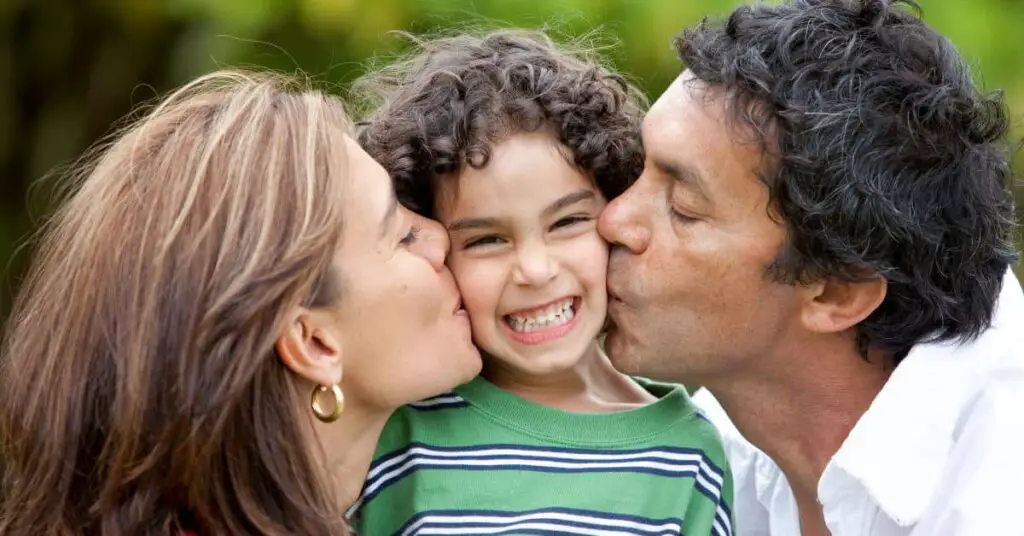Introduction
Co-parenting is a child-rearing situation where separated or divorced parents are responsible for raising a child. Effective co-parenting is crucial for the healthy development of children and helps them adjust better to changes in family structure. This article explores the three main co-parenting styles—cooperative, parallel, and conflicted—by defining each type in depth, examining their benefits and challenges, and providing real-life examples. It also compares the different types and offers evidence-based strategies for co-parents to work together in the best interest of their children.
Understanding Co-Parenting
Co-parenting involves separated or divorced parents working together to raise their children. According to research, a child’s adjustment after divorce depends on the conflict between parents (Kelly & Emery, 2003). Effective co-parenting, where parents support each other, is essential to children’s psychological and emotional well-being (Whiteside & Becker, 2000).
However, divorce often brings communication challenges that co-parents must work to overcome. Co-parenting requires parents to shift their focus from their relationship to their children’s development and parenting responsibilities. Parents must set aside their differences to make decisions together, provide consistent discipline and schedule coordinated routines. For newly separated parents, co-parenting skills develop over time and with experience.
The Three Types of Co-Parenting
Cooperative Co-Parenting
Cooperative co-parenting is characterized by low conflict, shared responsibility, open communication, and a mutually supportive relationship between parents regarding child-rearing decisions. Cooperative co-parents put their children’s needs and well-being first by remaining flexible, respectful, and willing to compromise. This style yields significant benefits, including lower anxiety and depression in children and parents, better academic achievement, and secure attachment relationships with mothers and fathers (Hanson, 2018; Sandler et. al. 2011).
While cooperative co-parenting is ideal, it requires conscious effort and may be difficult to achieve in the early stages of separation or if tensions remain unresolved. Collaborating as co-parents while processing feelings from a failed partnership can be challenging. With time and shared commitment to their children’s healthy development, many co-parents establish a cooperative style. The key is communicating empathetically, focusing on children’s needs, and being consistent, open-minded and solutions-focused.
Mr. and Mrs. Smith separated after 13 years of marriage. While the relationship ended, their priority has always been their two sons, aged 12 and 10. Mrs. Smith has primary custody, but Mr. Smith visits often, and they make important decisions together regarding health, education, activities, and rules. They attend school events as a united front and respectfully consult each other when challenges arise. The Smith boys feel secure knowing their parents support them and stay involved.
Parallel Co-Parenting
Parallel co-parenting involves parents separating parenting responsibilities with minimal communication or collaboration. They remain disengaged from each other while separately raising their children. For high-conflict couples, parallel co-parenting avoids direct conflict that would otherwise emerge. This style allows each parent to set rules and routines as they see fit, but children must adjust between different environments.
While parallel co-parenting sidesteps destructive communication, lack of support and an inconsistent approach from parents can negatively impact children’s well-being, especially for younger children. Children may feel caught in their parents’ inability to co-parent effectively. Parallel co-parents can still meet their children’s basic needs with solid boundaries, separate spheres of influence, and practical arrangements. But children thrive most when parents present as a united front (Kelly & Emery, 2003).
Mr. and Mrs. J’s relationship has remained tense since separating 18 months ago. They communicate little outside of practical matters concerning 8-year-old Maya’s schedule. Mrs. J has custody from Monday to Thursday and Mr. J from Thursday to Monday. In each home, rules and routines differ. Maya struggles to adjust her behaviour each time she changes households. While her parents’ parallel arrangement avoids direct conflict, their inability to cooperate leaves Maya feeling insecure and confused. With counselling, Maya’s parents could develop strategies to provide greater consistency and support between households.
Conflicted Co-Parenting
Conflicted co-parenting is characterized by frequent hostility, distrust, anger, and resentment between parents, damaging children’s healthy development. Constant fighting and tension cause emotional and behavioural problems in children, including higher rates of anxiety, depression, aggression, and hyperactivity, according to research (Kelly, 2012). Although some disagreements are normal, hostile and unresolved conflict creates an atmosphere of danger that undermines children’s security and wellbeing (Sandler et. al, 2011).
Conflicted co-parents are so caught up in their own issues that children’s needs come second. They refuse to compromise and use children as pawns to exert control or continue punishing each other. According to multiple studies, children of conflicted co-parents often fare worse emotionally, socially, and academically (Amato & Sobolewski, 2001; Kelly & Emery, 2003).
Mr. and Mrs. S argue whenever they exchange 7-year-old Mark for a visit. Custody is contested, and they criticize each other openly to Mark. He worries his parents will say if they attend his school events together. Mark’s grades are poor, and his teacher reports aggressive behaviour toward peers. Although his parents love him, their hostility and inability to shield him from their conflict are damaging. They require professional intervention to improve communication, set appropriate boundaries, and refocus on Mark’s well-being before his issues intensify.
Comparing the Three Types of Co-Parenting
While cooperative co-parenting is typically considered the healthiest style for most children, parallel and conflicted arrangements can also work for families with effort and in some circumstances. The level of communication, conflict, and support between co-parents are vital factors distinguishing the styles. Cooperative co-parents provide children with the most emotionally and cognitively supportive environment through ongoing open communication and a willingness to compromise. Parallel co-parents remain disengaged but can meet children’s basic needs with clear rules and boundaries in place. Conflicted co-parents, however, require counselling to address unhealthy dynamics and improve co-parenting for their children’s sake.
In all co-parenting styles, the central goal must be to meet children’s psychological, emotional and developmental needs before parents’ own issues or differences. When co-parents focus on their children’s best interests, they can work to establish an effective co-parenting arrangement through openness, empathy and shared commitment to parenting responsibilities. Compromise and counselling or mediation are often required, but the long-term benefits for children are worth the effort.
Strategies for Effective Co-Parenting
Some key strategies for navigating co-parenting challenges and improving dynamics include:
- Practice open communication through respectful listening, empathy and sharing information about children’s lives, schedules, and any issues arising. Meet in person when possible.
- Set clear rules and boundaries to minimize conflict over key issues like discipline, scheduling, extracurricular activities and household responsibilities. Be consistent in your approach.
- Consider family counselling or mediation. Speaking to a counsellor or mediator, even briefly, can help improve communication dynamics, set a cooperative co-parenting approach, and address tensions. Counselling also benefits children directly.
- Focus on your children’s best interests. Make decisions and compromises that support your children’s wellbeing above all else. Be flexible and willing to consult professionals when needed for guidance.
- Share parenting time and responsibilities as equally as possible. While one parent may provide primary residence, actively co-parenting includes security and stability for children. Coordinate rules, activities, and holidays.
- Update other significant adults in children’s lives. Share information with babysitters, grandparents, teachers, counsellors and coaches to provide a consistent approach to addressing issues or concerns regarding children.
- Seek professional advice on child development, parenting approaches, boundary setting and meeting emotional needs. Consider how to co-parent at different ages and stages positively. Continuous learning and improvement benefit both co-parents and children.
- Address new partners openly and honestly. Discuss expectations on when and how new partners will be involved in co-parenting and children’s lives. Focus on the wellbeing of children rather than your relationships. New partners must understand the priority placed on co-parenting.
Conclusion
The three main co-parenting styles are cooperative, parallel, and conflicted. Cooperative co-parenting is typically the healthiest approach, but similar and conflicted styles can also improve children’s needs. Co-parents should aim to communicate openly, set boundaries, seek counselling as needed and maintain focus on their children’s wellbeing.
In all its variations, the co-parenting relationship lays the foundation for children’s development and adjustment after separation or divorce. With work and shared commitment to meet their children’s needs, co-parents have an opportunity to navigate challenges through empathy, flexibility and a solutions-focused approach. While not always easy, establishing an effective co-parenting arrangement where children feel secure and supported is a worthwhile goal for any family experiencing transition.
FAQ
What is the best style of co-parenting?
The best style of co-parenting is one that is entirely about the wellbeing of the children and not about the parents’ personal or marital issues1. It involves cooperative co-parenting, where parents collaborate to make decisions regarding their child’s upbringing, communicate regularly, share information, and coordinate schedules. This arrangement provides a stable, consistent, and supportive environment for the children and reduces their risk of experiencing behavioral problems or mental health issues. It also requires compromise, positive communication skills, and proactive planning to resolve conflicts and complement each other. The best co-parenting style is not necessarily easy or natural, but it can be learned and practised with patience and commitment. It can benefit the children by making them feel loved, secure, and essential and increasing their self-esteem.
How does co-parenting affect child development?
Effective co-parenting, where parents work together respectfully, helps children adjust better after divorce by providing security, stability and meeting their emotional needs. Cooperative co-parenting supports healthy child development by minimizing the adverse impacts of stress, facilitating secure attachment, and encouraging academic and social development. Conflicted co-parenting, on the other hand, can undermine children’s wellbeing and development by creating anxiety, behavioural issues, and poor cognitive outcomes, according to research.
How can parents transition from one co-parenting style to another?
Parents can improve their co-parenting relationship over time with effort and commitment to their children’s best interests. Key steps include:
- Improving communication through respectful speaking and listening. Share details about your children’s lives and work to understand each other’s perspectives.
- Setting clear rules and boundaries regarding discipline, scheduling, and household responsibilities. Compromise when possible and be consistent in your approach.
- Seeking counselling or mediation. Speaking to a professional, even briefly, can help improve dynamics and set a cooperative co-parenting process. Counselling also benefits children directly.
- Focusing on your children’s needs above your issues. Make decisions and compromises that support your children’s wellbeing and development.
- Spending time together as co-parents. While tension may exist, try to co-parent directly at children’s events, activities and appointments. United co-parenting provides security for your children.
- Commit to ongoing improvement. Parenting and co-parenting skills develop over time with experience. Continuous learning and effort yield significant benefits, especially during transitions.
Transitioning to a more cooperative co-parenting approach is a process that requires work but helps establish a healthy environment for children to grow and develop in. Parents often find tensions ease with time, and co-parenting becomes more comfortable and intuitive. But the commitment to openness, consistency and meeting children’s needs is always required.
What are some common challenges in co-parenting, and how can they be overcome?
Some common challenges include:
- Lack of communication: Improve by listening actively, sharing details about your children, and staying solution-focused and child-centred. Meet in person when possible.
- Unresolved tensions: Seek counselling or mediation to work through issues together. Commit to co-parenting cooperatively by focusing on your children’s wellbeing.
- Inconsistent rules and discipline: Compromise by consulting each other to set consistent guidelines across households. Be flexible and willing to coordinate your approach.
- Lack of support: Make an effort to attend children’s events together as a show of unity, share updates with teachers/caregivers/coaches, and work as a team during challenges.
- Placing your needs/issues first: Focus on your children’s healthy development, even after separation. Make their wellbeing the priority in co-parenting decisions and interactions.
- Transition to new partners: Discuss introducing new partners openly as co-parents to set clear expectations. New partners must understand and respect the co-parenting arrangement in place. Focus on children’s adjustment.
With openness to improve, counselling if needed, and commitment to meet your children’s needs, co-parents can overcome challenges and establish an effective co-parenting relationship. Compromise, hard work and prioritizing your children will yield positive outcomes during difficulties or transitions.
How can a parent improve communication in a co-parenting arrangement?
Some tips to improve communication include:
- Listen actively and empathize by seeking to understand the other parent’s perspective. Validate their experiences and feelings.
- Share details about your children proactively, including schedules, school/activity updates, health issues, or any concerns. Ask for details in return and discuss together.
- Be courteous, polite and composed. Do not insult, threaten or criticize the other parent. Remain child-focused.
- Meet in person when possible for severe discussions. Phone calls are next best; avoid texting alone.
- Ask clarifying questions to ensure understanding. Repeat the information back and clarify any points of confusion.
- Suggest compromises and solutions together rather than making demands. Be willing to meet each other halfway.
- Keep conversations child-centred. Discuss issues relating to your children’s wellbeing and co-parenting responsibilities. Avoid personal matters.
- Update other adults involved with your children to provide a consistent approach. Share information with schools, doctors, counsellors, babysitters, grandparents, etc.
- Revisit your co-parenting agreement/arrangement and be open to making changes together. Co-parenting is an ongoing learning process.
- Communication in co-parenting relationships can improve with effort and commitment to benefit parents and children. Understanding differing viewpoints, sharing information openly, remaining constructive, and focusing on your children’s healthy development is key to effective co-parenting communication.

I’m Mithun Debnath, a dedicated dad and the founder of Papa Parenting. I’m here to share my parenting journey, tips, and insights to make your life as a parent a little easier. Join me as we navigate the adventures of fatherhood together.






